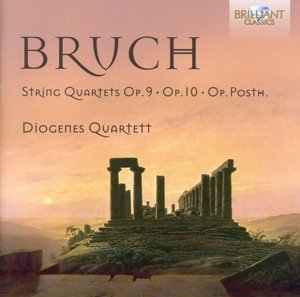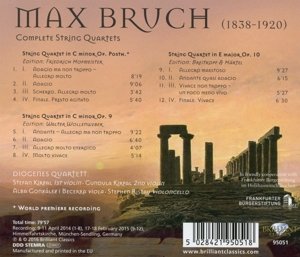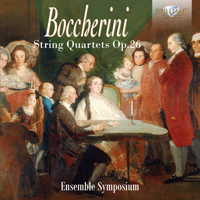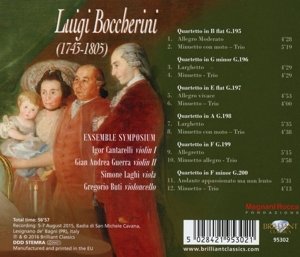Lindsey Stirling Brave Enough album review by
silentstring.blogspot.com
Yeah, of course I listen to Lindsey Stirling also, along with my zillions of classical chamber music. Miss Lindsey Stirling is a hip hop / dubstep / disco violinist that taken the world by
storm beat in 2012 with her
debut album. Her music incorporated catchy violin playing accompanied by the last version of disco music that called "dubstep". Her other trademark is the
Youtube video she always produced to visualized her violin playing. She is one of Youtube celebrity indeed, she easily make millions of Youtube likes just by playing violin, bet not much any violinist can do.
Brave Enough is her third studio album. The most elements that different from previous albums are, this album brave enough to included half dozen of vocal tracks. Well, people like to listen to your violin playing miss Lindsey, but hey we let you explore also. We'll talk about the instrumentals tracks first, as this is what the majority of the house looking at the album. I love the opener "
Lost Girls", because its started mellow and slow with crystal clear violin playing trying to stealth your breath away. This track is the direct continuation of Lindsey Stirling styles. The pumping beat still there, with lots of minor scale licks, the electronic "uh-uh" vocal, we got Lindsey Stirling trademark. Then we got "
The Arena", which is supposed to be bit of tango-like elements, judge from the videoclip. Indeed the track worth enough to be the album single because this one really biting here and there with the violin playing and mixed well with the choreography at the clip. "
The Phoenix" is having bit of oriental feeling and that went good with violin usually. We then get "
Prism", which according to sources, is the OST for the next Disney movie "Pete's Dragon". The song is lighter then previouses. Prism lighten up situation with enjoyable disco violin music. I bet most children will like it as well.
Now I must praise "
Mirage (feat. Raja Kumari)". This is the track where Lindsey collab-ing with Indian style music and musicians. Now if you like Bollywood, this is your chances to get it done with Lindsey Stirling. I like it very much and the song added more color to the album. "
First Light" is the most 'standard' tunes with violin music without any 'stunt'. The other easy listening song are "
Gavi's Song", where a duet of violin and piano is going to bring your evening to the moon. In several package (Deluxe version), there are about four additional bonus songs.
Waltz, Afterglow, Powerlines, and
Forgotten are that four songs , all instrumentals.
For the vocals songs, I recommended foremost is "
Where Do We Go" featuring Carah Faye. This is a pop song that mixed well with violin lick playing at background. The two elements, vocals and violin is equal and fills in each other. The flag song "
Brave Enough" itself is also powerful. Featuring Christina Perri, this song is focusing more into the vocals and the lyrics. The violin get some beautiful melodies though. "
Those Days" featuring Dan + Shay, is intimate boy band style song, the violin comes a bit in the background. "
Hold My Heart" featuring ZZ Ward is having complicated mix between disco+alternative pop+rock because of ZZ Ward's unique musical style. "
Don't Let This Feeling Fade" well, the only song that I don't thing works in this environment, the rap of Rivers Cuomo & Lecrae is trying their best to fit. Mysterious singer, Rooty, is the next singer to sing in "
Love's Just a Feeling", a pop song with bit of '80 feel. Must admit that the male voice also a bit of challenge in pair with violin playing. "
Something Wild" featuring Andrew McMahon In the Wilderness, is this last challenge. The song gone with folk-like nuance, not much problem and I like it actually.
Brave Enough is lovely third studio album by Lindsey Stirling. The two years in wait maximum miss Lindsey creativity and this album is reflecting the quality of her music. This album is not strict violin orientated album, just like her debut. Some die hard violin lover might protest the, ehem, originality of this album is not as high as the first album. It is true that we found lesser Lindsey magic melodies in this album, because the large volume of vocals song. But, with about 18 tracks in
Brave Enough, we have enough instrumental tracks to choose. At least I feel this album is better concept than her in-between second studio album,
Shatter Me. So, shut the door and turn your ampli with maximum bass frequency, the album is really to
rock beat it!
Lindsey Stirling - Brave Enough (2016)
BUY IT HERE - AMAZON
01. Lost Girls
02. Brave Enough (feat. Christina Perri)
03. The Arena
04. The Phoenix
05. Where Do We Go (feat. Carah Faye)
06. Those Days (feat. Dan + Shay)
07. Prism
08. Hold My Heart (feat. ZZ Ward)
09. Mirage (feat. Raja Kumari)
10. Don't Let This Feeling Fade (feat. Rivers Cuomo & Lecrae)
11. First Light
12. Love's Just a Feeling (feat. Rooty)
13. Something Wild (feat. Andrew McMahon In the Wilderness)
14. Gavi's Song
15. Waltz (Bonus Track)
16. Afterglow (Bonus Track)
17. Powerlines (Bonus Track)
18. Forgotten Voyage (Bonus Track)
















